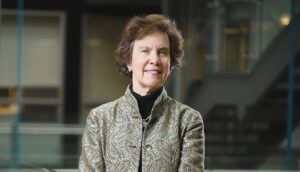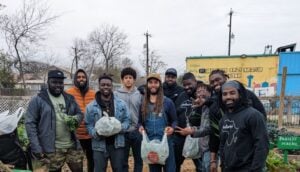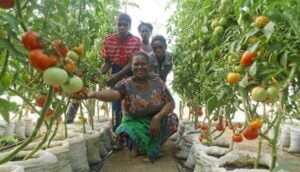Post by Susan Olsen, Lead Specialist, Opportunities for the Majority Initiative, Inter-American Development Bank
 We know markets often fail the poor. The “Opportunities for the Majority” Initiative (OMJ) of the IDB seeks to develop and promote market-based solutions to help solve the market failures that prevent the Base of the Pyramid (BoP) from accessing quality products and services, or increased economic earning opportunities to improve their livelihood. We in OMJ are particularly concerned about finding solutions that provide more dignified housing options for the BoP. After all, the home is the basis for all economic and social life in the family unit. If living conditions aren’t adequate, children are more susceptible to respiratory illnesses from dust stirred up off dirt floors, or fumes from kerosene lamps and gas stoves with improper ventilation. Not to mention that it’s hard to concentrate on homework and school exams if living conditions are overcrowded or unsanitary. Homes that are safe and sanitary, on the other hand, can be a vital building block for hosting other in-home based micro-business activities which help propel the poor to greater earning potential and income stability.
We know markets often fail the poor. The “Opportunities for the Majority” Initiative (OMJ) of the IDB seeks to develop and promote market-based solutions to help solve the market failures that prevent the Base of the Pyramid (BoP) from accessing quality products and services, or increased economic earning opportunities to improve their livelihood. We in OMJ are particularly concerned about finding solutions that provide more dignified housing options for the BoP. After all, the home is the basis for all economic and social life in the family unit. If living conditions aren’t adequate, children are more susceptible to respiratory illnesses from dust stirred up off dirt floors, or fumes from kerosene lamps and gas stoves with improper ventilation. Not to mention that it’s hard to concentrate on homework and school exams if living conditions are overcrowded or unsanitary. Homes that are safe and sanitary, on the other hand, can be a vital building block for hosting other in-home based micro-business activities which help propel the poor to greater earning potential and income stability.
But where do you start to improve the quality of housing solutions for the poor when new homes are priced out of reach? It’s a vicious circle for the BoP. The classic trap goes something like this: i) low-income clients are forced to rent, often at a high price/quality ratio; ii) this means they don’t have enough extra income to save each month and can’t come up with a down payment for a new home and iii) most housing subsidy programs – where they exist in Latin America – follow the “A,B,C” formula: ahorro (saving) + bono (subsidy) + credito complementario (mortgage loan, complementary credit). So if you can’t come up with the savings required, you’re out of luck in terms of accessing the government subsidy.
Even those few who can save up and complete the “A” and “B” requirements get stuck on part “C” – they can’t get a mortgage loan from a bank or microfinance institution (MFI) to complete the home purchase. There are hardly any banks in Latin America interested in going down-market to offer small mortgage loans ( less than $15k), let alone many that are able to qualify clients with low, irregular incomes, from the informal sector with little – if any – track record or hard assets to pledge. MFIs used to working with the BoP could fill the gap, but even in the dynamic microfinance sector in Latin America few MFIs have the necessary funding base to offer micro-mortgages for the 10-20 year time frame required to amortize a home loan. In the absence of micro-mortgage products, many MFIs are gaining expertise in providing “housing microfinance” type products to provide the BoP with access to medium term funding and technical assistance for home improvement or incremental construction; OMJ is supporting a number of these private progressive housing initiatives including in Honduras, Paraguay and Peru.
However, gradual qualitative housing improvements often aren’t enough, especially considering the massive quantitative housing deficit – i.e. need for more affordable new housing units – which comprises between 30-40% of the total housing deficit in Latin America. The need for an increased supply of affordable homes from social housing developers is clear, but what are property developers to do? They are in business to deliver new housing projects, but often find themselves “stuck” with slow-inventory turnover; while many know how to build a basic housing module well and keep down construction costs using affordable materials, they don’t have enough qualified clients to buy their cheaper houses. So in the absence of increased sales volume, larger scale developments and quicker inventory turnover, they can’t truly become cost-effective in their construction and pass on the cost-savings to low-income clients. And the vicious cycle repeats.
That’s where “Social Leasing” comes in. OMJ is currently working with organizations in Colombia and Nicaragua that seemed to have “cracked the code” on developing a new business model that solves the bottlenecks which prevent more of the BoP from gaining access to dignified housing units. These Social Leasing programs bring together banks, property developers and BoP clients in a “win-win” arrangement. The program offers buyers the chance to rent a new house for a 2-3 year period from the property developer, with an “option to purchase” after completion of the lease period. Monthly lease payments are based on affordability, and usually substitute the client’s current monthly rental payment; each month, the coordinating institution – usually a bank – sets aside a portion of the lease payment for savings and to cover title transfer costs. Assuming the client finishes the lease period with a clean payment history, they pre- qualify for a mortgage loan with the bank, and can often make a seamless transition from leasing to owning their home. Simple and effective.
“Housing Lease” programs are not new, they have been operating in Chile for some time, but what is new is the down market aspect, getting developers and banks to work with clients in the $10-$20k/ home price range. We are excited to get these new social leasing pilots off the ground… the model may just be the “holy grail’ to providing BoP customer access to dignified homes, through a private sector solution in a larger scale than has been achieved in the past.
If you like this idea and want to learn more about other business solutions for BoP markets, please join us in Sao Paolo Brazil on June 27th and 28th, where OMJ is hosting IDB’s 1st regional Base of the Pyramid conference; showcasing dozens of innovative business models – including a panel on “out-of the box” private housing solutions – and numerous leading speakers with global experience on doing business with the BoP. To register for “BASE”, click here.










